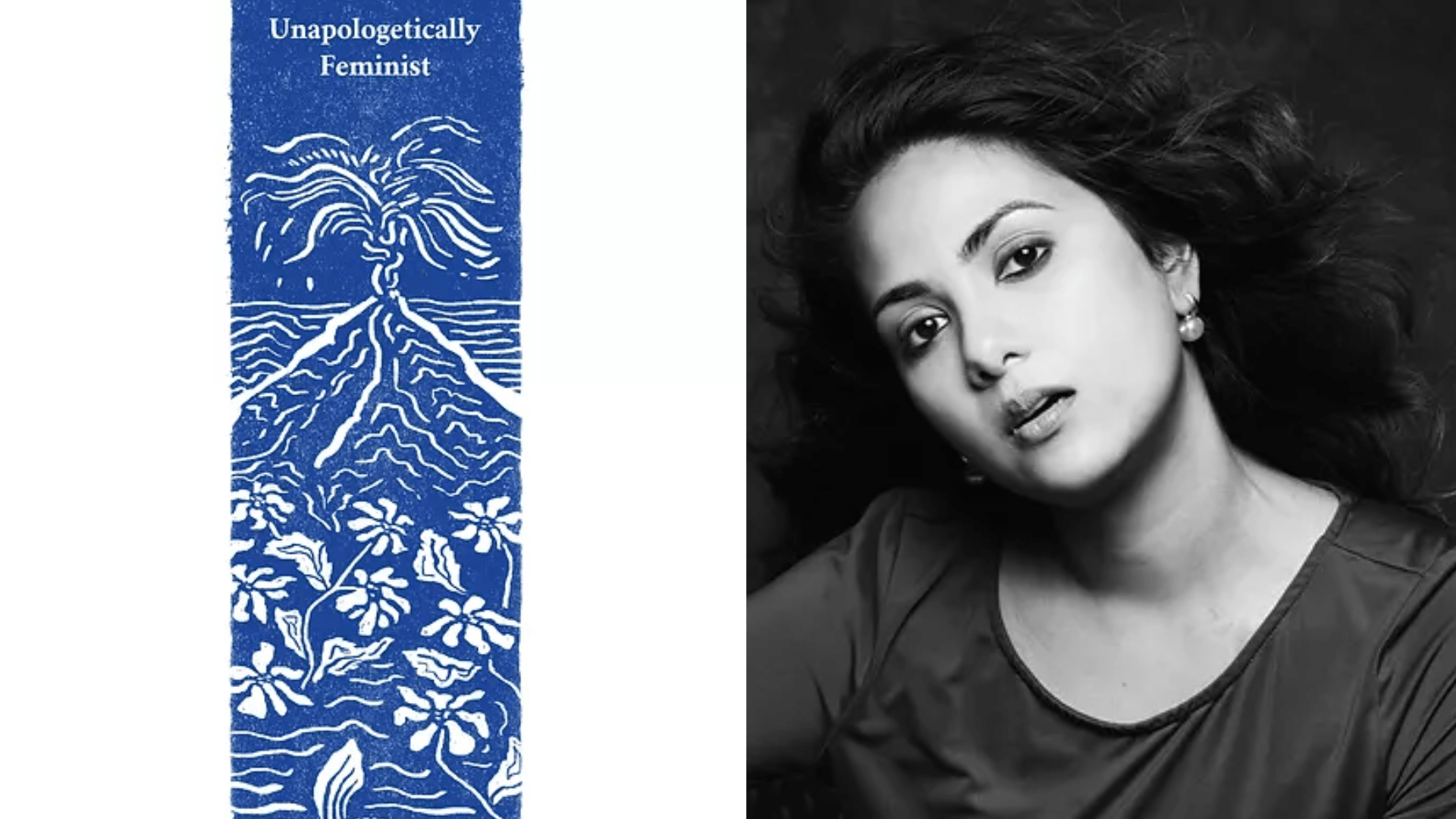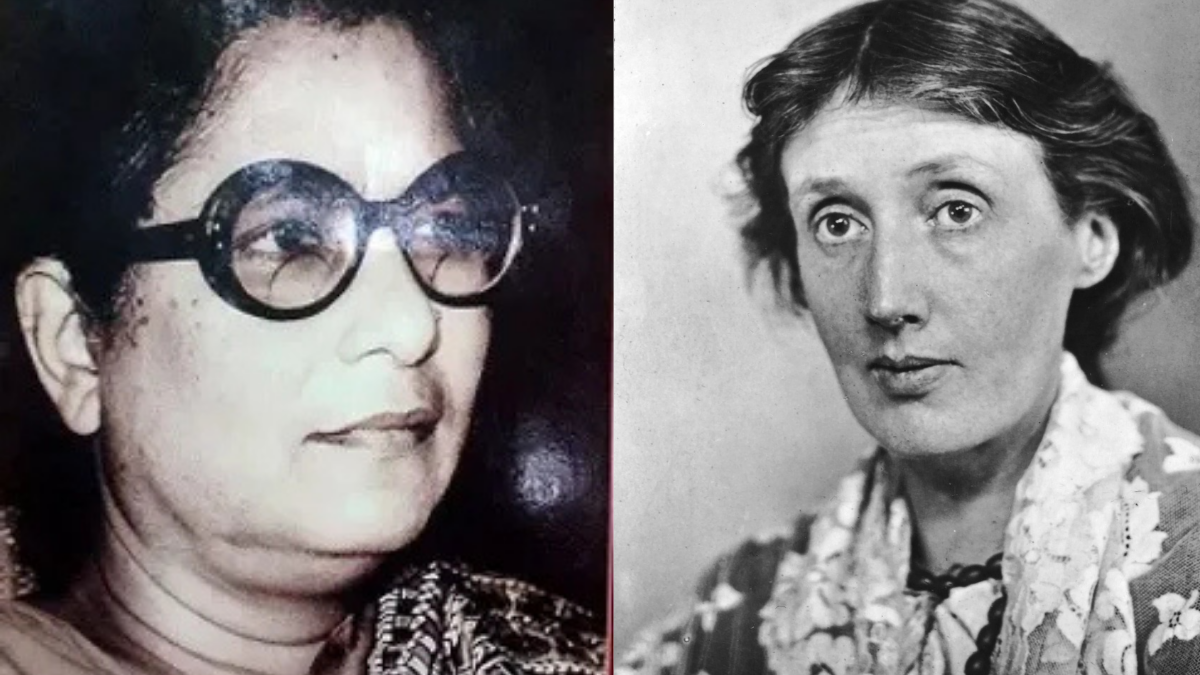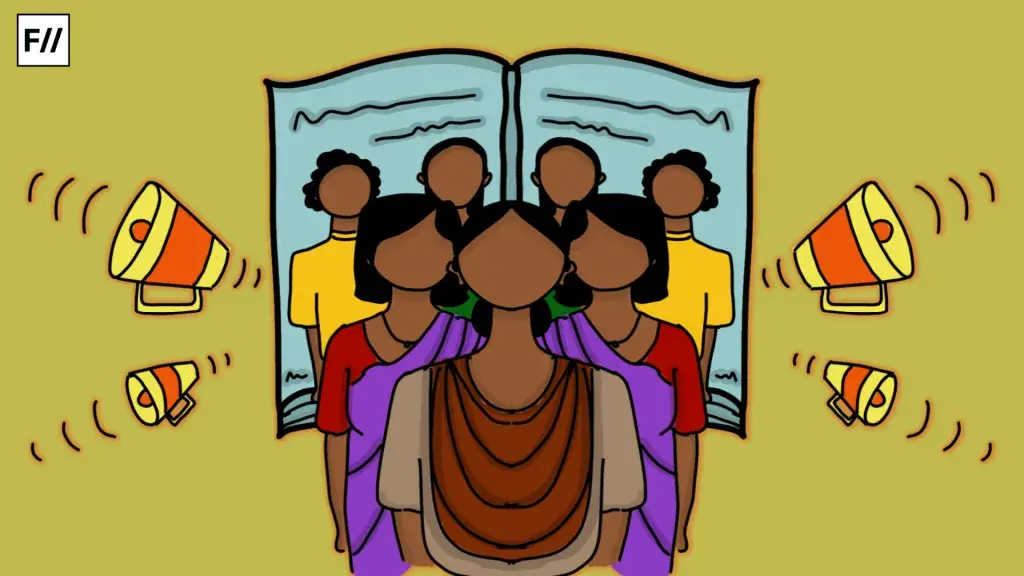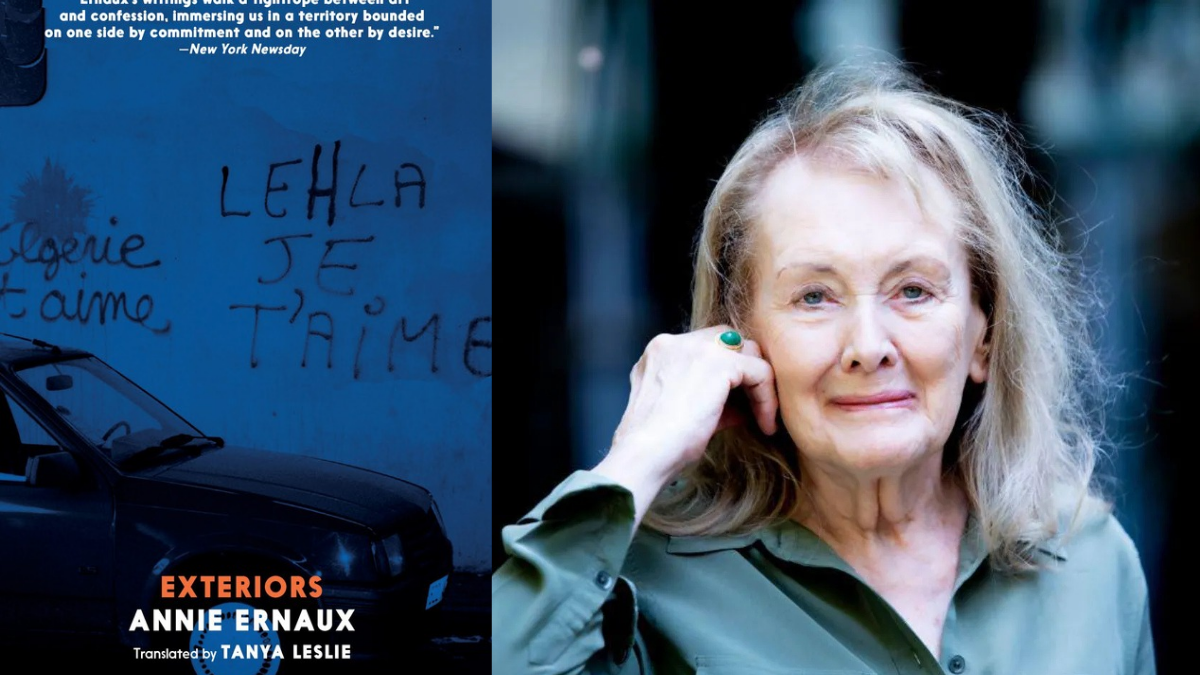“How futile were the sinister and their schemes,
To forsake our youth into chiselled wars,
That we never asked for
We couldn’t even tell the colour of their blood,
Yet we divided them into flags and heritage.“
Urvashi Bundel’s book Unapologetically Feminist retaliates against injustice, wrong and violence, both in the particular as well as the universal. The book is searing, for it makes one reflect on the banality of the idea of individual peace when every corner of the world is replete with the most grotesque kinds of violence.
The book self-meditates and then agitates for corrective behaviour. It does not only lament in the corner with surface-level rhetorics what Bundel has done; given the amassing of her extensive experience in defending human rights in real life, is that she has not only unapologetically documented the times contemporary to her life but also humanised those at the receiving end of it all. Bundel has reasoned and showcased the cause of these human suffering and has neither compromised on the integrity of the issues nor on the poetic devices used.
Urvashi Bundel’s book Unapologetically Feminist retaliates against injustice, wrong and violence, both in the particular as well as the universal. The book is searing, for it makes one reflect on the banality of the idea of individual peace when every corner of the world is replete with the most grotesque kinds of violence.
While searching for and aspiring for peace in the world, Bundel does hold onto her roots. She says,
“To isolate into the woods of affirmations,
That our mothers used to sing.“
In that, she reasons against state repression, human conflict and interpersonal patriarchal brutalities while hoping and building as and when required.
“Ever since kindergarten,
I was taught white is a colour,
To my surprise, when I came to America,
I was identified as ‘coloured’,
America helped me assimilate
This change from “colour” to “colour”,
What it couldn’t persuade me of though,
Was that, White is not a colour.”
Bundel’s experiences of being alienated, othered and ostracised for being a woman of colour come across strikingly in Unapologetically Feminist as she underlines, again and again, her ordeals of being seen as different for the same.
This feeling of exclusion and banishment has been explored in multitudinous other works by BIPOC writers. One resounding thing about Bundel’s poetry, though, is that even as she expresses her agony and devastation of being sidelined and discriminated against because of her colour, she also elucidates on the universal issues, issues which would also impact those more privileged than her, like white women. It is noteworthy that while writing this review, autocorrect, with its seemingly white effect, was suggesting Bundel’s name to be corrected to ‘Bundle’ — her identity being unrecognised by a system which has never documented one of her kind.
This feeling of exclusion and banishment has been explored in multitudinous other works by BIPOC writers. One resounding thing about Bundel’s poetry, though, is that even as she expresses her agony and devastation of being sidelined and discriminated against because of her colour, she also elucidates on the universal issues, issues which would also impact those more privileged than her, like white women. It is noteworthy that while writing this review, autocorrect, with its seemingly white effect, was suggesting Bundel’s name to be corrected to ‘Bundle’ — her identity being unrecognised by a system which has never documented one of her kind.
The one issue with Unapologetically Feminist is that while Bundel has stated what she faces abroad and universally, like racism and patriarchy, Bundel has not touched on the issue of caste within South Asia.
However, unlike the hypermasculine aura around some works by male poets, which only overtly extend empathy and vigour to causes concerned by the self, Bundel has managed to empathise with all. She has not written selectively to cultivate only those causes directly impacting her but also has articulated issues which affect all.
One can always argue that this is normal, and any violation of human issues of one is the violation of human rights of all, and in that Bundel has then automatically vocalised on issues which directly or indirectly impact her.
In the poem ‘Great Expectations’, Bundel writes about how it is not only accepted but also encouraged and conditioned for women to not be ambitious or brilliant, how it is normalised for them to not aim for more. And when later in the Unapologetically Feminist, Bundel writes, “Patriotism is not nationalism” she emphasises what most people around the world need to cogitate on and comprehend.
The poem ‘Margin of Error’ questions the duplicity practised by the privileged as it remarks,
“When you do not comprehend,
How someone could be virtuous,
But without voting rights.
When you do not understand,
How someone could be overqualified
But without a job.
When you do not understand
How someone could be talented
But without a nationality.
When you do not understand
How someone fled his or her country barefoot
But without an identity card.
When you do not comprehend
How someone works three jobs
But still cannot meet their rent.“
Through these poems, the book has explored all kinds of challenges thrust upon the oppressed and the hypocrisy of the privileged who oppress. In that, Unapologetically Feminist does a remarkable job of questioning the conscience of the elite who evade all accountability.
There could have been places where Unapologetically Feminist could have reached a wider audience if it had images or illustrations or descriptions going with the poems, in the sense that the book assumes that everyone who reads it is informed and concerned about the causes emphasised in it.
Also read: Book Review: Displacement And Citizenship: Histories And Memories Of Exclusion
This makes the target audience slightly limited, for many lovers of poetry may not all be well aware of all kinds of human rights violations, and all individuals aware of these violations might not be well-versed in poetic forms. However, for those who meet at the confluence of art and agitations, the book renews hope and peace in a constantly dooming world.
Also read: Why ‘We Should All Be Feminists’ By Chimamanda Ngozi Adichie Is A Mandatory Read
Featured image source: urvashibundel.com
About the author(s)
Ankita Apurva was born with a pen and a sickle.





